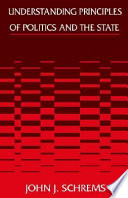 | Robert E. Denton - 244 páginas
...free speech would not protect a man in falsely shouting fire in a theater, and causing a panic. Ii does not even protect a man from an injunction against...words used are used in such circumstances and are of such a nature as to create a clear and present danger that they will bring about the substantive... | |
 | Joseph Francis Menez, John R. Vile - 2004 - 660 páginas
...Many things that may be of no consequence in time of peace may not be said when a nation is at war. "The most stringent protection of free speech would...falsely shouting fire in a theatre and causing a panic." The statute punishes conspiracies to obstruct as well as actual obstruction. There are no grounds for... | |
 | Murray Dry - 2004 - 324 páginas
...to preventing prior restraints, he introduced the famous "clear and present danger" test this way: The most stringent protection of free speech would...falsely shouting fire in a theatre and causing a panic. . . . The question in every case is whether the words used are used in such circumstances and are of... | |
 | Jay Shafritz - 2004 - 319 páginas
...articulated by Associate Justice Oliver Wendell Holmes in Schenck v. United States (1919), when he wrote that "the most stringent protection of free speech would...shouting 'fire' in a theatre and causing a panic." Holmes created the test that has often been used in free-speech cases: "The question in every case... | |
 | John Schrems - 2004 - 408 páginas
...words, "the character of every act depends upon the circumstances in which it is done," adding that "the most stringent protection of free speech would...in falsely shouting fire in a theatre and causing panic." The Court ruled, and this is key, that if the circumstances "create a clear and present danger"... | |
 | Stephen L. Newman - 2004 - 296 páginas
...Writing for the Court, Justice Holmes announced the clear and present danger test and proclaimed that "[t]he most stringent protection of free speech would...protect a man in falsely shouting fire in a theatre." Speech can be suppressed, in other words, if there is "a clear and present danger" that it will bring... | |
 | Jon Stewart, Ben Karlin, David Javerbaum - 2004 - 248 páginas
...pornography, eventually settling on the slightly more graphic characterization, "that which gives me wood." "The most stringent protection of free speech would not protect a man in falsely shouting fire in a theater and causing a panic" -Schenck v. United States (1919) Holmes's famous dictum on the limits... | |
 | Robert E. Denton - 244 páginas
...constitutional rights. But the character of every act depends upon the circumstances in which it was done. . . . The most stringent protection of free speech would not protect a man in falsely shouting fire in a theater, and causing a panic. It does not even protect a man from an injunction ugainst uttering words... | |
 | International Debate Education Association - 2004 - 254 páginas
...clarify these ambiguities. should be done by an independent body. As Justice Oliver Wendell Holmes wrote, "the most stringent protection of free speech would not protect a man in falsely shouting fire in a theater and causing The tyranny of the majority is a good reason to resist government censorship. A... | |
 | Geoffrey R. Stone - 2004 - 758 páginas
...constitutional rights. But the character of every act depends upon the circumstances in which it is done. The most stringent protection of free speech would not protect a man in falsely shouting fire in a theater, and causing a panic. . . . The question in everv case is whether the words used are used in... | |
| |